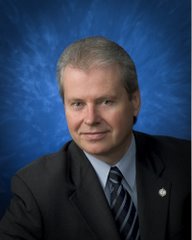The
Liberal government of Prime Minister Mark Carney will not table a federal budget
this year, Finance Minister François-Philippe Champagne said. He made
significant justifications including the excuse to include a fall economic
statement instead. This choice undermined Ottawa's fiscal credibility amid
mounting international economic uncertainty.
However,
the situation appeared even more dire. The foundation of our Parliamentary
democracy and our Westminster model is “the power of the purse”. The primary
role of Parliament is to scrutinize and approve government spending. Parliament
is not the government, but an independent institution of the people, where the
government (the Executive) must seek permission to tax and spend the people’s
money, and to get legislation approved.
Parliament
developed and evolved through the centuries before the invention of political
parties and the position of a Prime Minister. Parliament is foundational to the
governance of the nation.
Such
a prolonged absence of a properly presented budget would strike at the very
core of our democracy. It is not a matter to be taken lightly. A federal budget
is the most crucial legislative matter a government can present. It serves as a
vital update on the nation's financial health and outlines the spending
priorities for which it must be held accountable.
The
unusual decision marked the first time since 2020, at the height of the
COVID-19 pandemic, that Canada had gone without an annual budget. Minister
Champagne defended the choice with details, falsely claiming the need to
prioritize a promised tax cut and a throne speech before Parliament adjourns in
June. He rationalized by saying, “Canadians have seen the priorities we
outlined during the campaign. We’re taking a step-by-step approach.”
The
policy choice was a massive crack in Carney's credibility as a financial
manager. With a huge finance department at his disposal, the Prime Minister was
not credible if he could not present a budget. It was a ridiculous policy. It
appeared to be the same behaviour that plagued the Liberals for the last
decade, disregarding the basics of Parliament. Carney was a banker; what banker
could not get a budget together to fulfil his constitutional duty to Canadians?
Conservative
Leader Pierre Poilievre observed that Carney, a former Bank of England governor
and hailed by Liberal supporters as an economic heavyweight, was abandoning his
responsibility and accountability. “After months of promising ‘serious
leadership’, Carney delivers delays and dysfunction,” Poilievre wrote on social
media. “You don’t need a PhD in economics to know that hiding from a budget
isn't governance." This criticism from the opposition is a crucial part of
our democratic system, ensuring that the government is held accountable for its
decisions.
The
absence of a budget was a political signal that something was seriously wrong.
While governments occasionally adjust fiscal timelines after elections, there
was no practical reason for a “no-budget process”. Former Prime Minister
Stephen Harper’s Conservatives tabled a budget in June 2011, just weeks after a
May election. By contrast, the Liberals argued that more time was needed to
factor uncertainty, pointing to volatile trade tensions with the US and
sluggish global growth.
The
avoidance struck at the heart of Carney’s political credentials. Carney
campaigned on a pledge to restore rigor to federal finances. Instead, they
appeared to be running away from their duty.
The
nation is in dire need of a fiscal plan to navigate the uncertainty. The
Liberal election platform was built on assumptions that may no longer hold. The
economy is now weaker, and the deficit is likely higher. The absence of a budget
was not just a procedural issue; it has significant implications for our
financial future, and Canadians need to be aware. They are the legal plans for
the government to signal to Canadians and the world where the economy is
headed.
In
front of cameras, Carney signed a meaningless document to symbolize the small
change in income tax rates for the bottom tier. The actual change requires
legislation, so we again have a Liberal image over substance.
Nevertheless,
a full budget is not just a document for the financial community, as it is the
core document for action for how a government will lead and implement its
agenda. It is the roadmap for the government's actions. However, Finance
Minister Champagne said they had several priorities to tackle before the House
of Commons is scheduled to rise in June, but tabling a budget was not one of
them.
It
is unacceptable that the government would not put forward a full budget when it
could. After months of building expectations and promising serious leadership,
Carney announced that he would deliver nothing. Canadians were told that Mark
Carney, the supposed serious economist, would bring competence. Instead, Canada
observed dysfunction.
The
budget is supposed to be tabled in April. However, due to the federal election
and the fact that Parliament was prorogued before the election, no budget has
been tabled this year.
However,
the election timing does not prevent the government from tabling a budget.
Parliament must still pass the primary and supplementary estimates, which are
the legislative core needed for the government to function.
Governments
must table main estimates once a year and supplementary estimates three times
throughout the year. The main estimates need to be passed every year. The next
deadline for the supplementary estimates to pass is June.
The
House will return on Monday, May 26, and the ‘throne speech’ will be read the
following day. A vote on the speech will be the first democratic test of
“confidence” from Parliament that the Liberals must win to stay in power.
However, the ongoing substantive test is to pass a budget in the House of
Commons. The Liberals need a budget to be legitimate. The 'throne speech' sets
the tone for the government's upcoming agenda, and the subsequent budget is
expected to provide the financial details to support this agenda.
The
Liberals were criticized for their ‘no-budget announcement’. It was outrageous
that the government would not table a budget for over a year. Their excuse
about too many moving parts to be accurate was not real. Competent bureaucrats
could give 'best-and-worst' scenarios.
Canada
needed a full budget in September at the latest. Their excuse implied that they
did not take Parliament and legal governance seriously. A budget must honestly
recount the international challenges, describe financial plans, and have them
voted upon.
The
Conservatives are right about the central behaviour of governance. The Prime
Minister’s policy was demeaning to the nation and was not an acceptable
standard. It seemed to be the slippery slope to despotism and top-down
dictatorship by avoiding Parliament for its most central function.
By
not attempting to come forward with an economic plan, they undermined any
credibility about carefully managing public finances. Private sector business
plans and the financial markets are left guessing. Private sector financing
would be placed on hold.
By
delaying in order to account for uncertainty, the government would create more
uncertainty. Government bonds are used to raise funds. Investors will have less
confidence in buying government bonds without a clear picture of the
government's finances. Bond rating agencies would not like the government's
failure to produce core financial documents.
The
government uses “special warrants” to keep the lights on during elections. In
May, a special warrant was issued to cover operating costs until June. These
are "stopgap measures" that eventually must be voted on in
Parliament.
Mr.
Carney claimed during the election that he had a plan. He mocked the
Conservatives by saying that a slogan is not a plan. However, the budget is the
plan. Yet, the Liberals were saying ‘no budget’ and no prospect for one.
With
all the government resources, there was no reason not to present a budget. The
dishonesties were mounting up. They claimed to be fighting back against Trump's
tariffs with Canadian tariffs, but then secretly removed them.
They
also claimed to be the answer to the financial dilemma, but they had no budget
plan. The repeated message was clear. The Liberal government would not table a
federal budget this year. Finance Minister François-Philippe Champagne
reconfirmed the policy to many media outlets.
Then
days later, in answer to a media scrum in Rome, Prime Minister Mark Carney said
on Sunday morning that he will table a Budget this fall. The change was a
significant correction on the fly without a Cabinet meeting —make it up as we go. Likely it was the
Conservative response to the finance minister that revealed their serious error.
They were embarrassed, as they had no plan when they claimed to have one. They
were forced to change course to a sensible direction.
However,
what does “the fall” mean? Maybe mid September or even December? Given all the dissembling
and Liberal myth making, we must keep perspective, that Canada is about its
people and the land, not the Liberal party. Canadians know what is needed, and they
will eventually discover that the Liberals can’t deliver it.










2 comments:
I knew they were crooked, and this proves it !
The ethically challenged and financially compromised Carney will look after himself before he cares for the country. Self-interest is coming before national interest.
Post a Comment